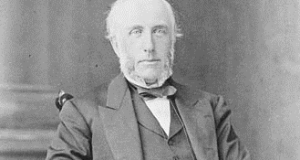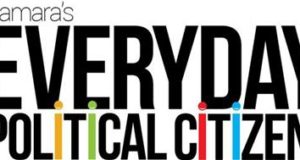The United States presidential election of 2016 will be analyzed for decades if not centuries. Most of that analysis will concentrate on the two candidates, and their respective campaigns and supporters. But as far I am concerned, one of the greatest tragedies of the election was entirely attributable to the Republican-controlled Senate. I am speaking, of course, of the Chamber’s ...
Read More »Yearly Archives: 2016
Parliament’s Post: The City of Hamilton Cannot Regulate Community Mailboxes
Recently, the Ontario Court of Appeal in Canada Post Corporation v Hamilton (City)[1] had an opportunity to revisit the doctrine of federal paramountcy in the context of the most exciting of subjects: community mailboxes. Below, I briefly review the facts of the case, and argue that the case should have been decided on the grounds of validity rather than operability. ...
Read More »ARL on Twitter
Advocates for the Rule of Law finally has a twitter presence! If you use twitter, follow @ARLCanada to receive updates on all ARL articles, commentary and news items.
Read More »The 2017 Law & Freedom Conference
The Canadian Constitution Foundation will host its annual Law & Freedom Conference between January 6 – 8, 2017. The conference will be held at Hart House at the University of Toronto, which located at 7 Hart House Circle. This year’s speakers include the Honourable Chief Justice Glenn D. Joyal of the Manitoba Court of Queen’s Bench, Professor Emmett Macfarlane of ...
Read More »“Intolerant and Illiberal”: The B.C. Court of Appeal is Right to Insist on Tolerance for an Intolerant Institution
In a decision issued this week, Trinity Western University v. The Law Society of British Columbia, 2016 BCCA 423, the British Columbia Court of Appeal held that the Law Society acted unreasonably when its benchers, following its members, voted “not to approve” the University’s proposed law school, preventing its graduates from practicing in the province and causing it to lose the ...
Read More »A Marriage Made in Britain: Section 121 and the Division of Powers
The New Brunswick Court of Appeal will hear the Crown’s appeal in R. v. Comeau this coming month. The issue for appeal is whether Justice LeBlanc of the New Brunswick Provincial Court got it right in finding that s.121 of the Constitution Act, 1867 prohibits both tariff and non-tariff barriers between the provinces, overturning the Supreme Court of Canada’s precedent ...
Read More »Parliament Should be Consulted on Military Deployments
It’s always easy to seek permission when you know you’ll get it. While not required to do so, the Liberals asked the House of Commons to vote recently on whether to ratify the Paris Agreement, an international climate change accord. In contrast, they do not intend to ask Parliament to approve their plan to send 600 soldiers to Africa on a ...
Read More »Runnymede Society Debates Electoral Reform and Other Upcoming Events
You’re invited to join the University of Toronto Runnymede Society Chapter on Tuesday, October 11th for a debate between two leading Canadian public intellectuals on the currently pending issue of electoral reform! Peter Loewen, School of Public Policy and Governance, will argue that first past the post has proven advantageous in our highly regionalized democracy, we should not be quick to abandon it. ...
Read More »Recognizing ARL’s Contribution
I am deeply honoured to have been nominated for Samara’s Everyday Political Citizen, an annual contest that profiles ordinary people working to strengthen their communities and our democracy. This nomination is a reflection of the good work ARL has done over the last two years and I share it with all the ARL members and everyone else who has helped contribute to ...
Read More »The Correct Approach to Contractual Interpretation
The Supreme Court of Canada’s freshly released Ledcor Construction Ltd. v. Northbridge Indemnity Insurance Co. provides welcome clarification to contract law generally and insurance law specifically. By holding that appellate courts are to review interpretation of “standard form” contracts on a correctness standard, the court protects the rule of law. The decision should also promote access to civil justice. Background ...
Read More » Advocates for the Rule of Law
Advocates for the Rule of Law









